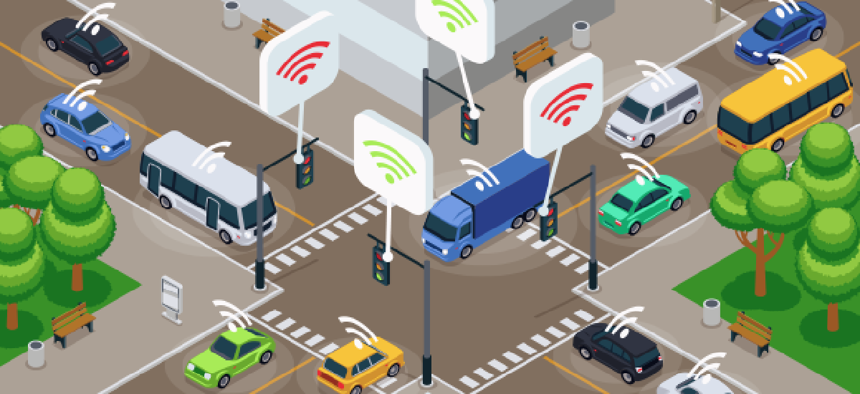L.A. drives automated vehicle deployment with pre-qualified vendor pool


Connecting state and local government leaders
The prequalified vendors will help the city keep pace with rapid developments in technology.
It doesn’t matter what list of “worst traffic cities” you’re looking at -- Los Angeles is likely at or near the top. Connected and automated vehicle technology could help improve the city's transportation network, but with technology evolving across a wide range of related fields, keeping a connected transportation infrastructure up to date is a tall order.
To make it easier for the city to procure and adopt new connected and automated vehicle technology, Los Angeles Department of Transportation released a request for qualifications on Oct. 4 to help it find vendors to prequalify for work on automated vehicles.
Michael Lim, the executive advisor for Los Angeles’ automated vehicle planning, told a crowd at Smart Cities Week in Washington, D.C., that L.A. DOT was looking for companies with expertise in the automated vehicle space, across more than 20 different fields such as data processing, multiple manufacturing sectors, engineering services and transit knowledge.
Currently, procurement can take between 24 and 36 months for a single technology, Lim said. This would speed up that process. Private sector partners will be prequalified for a three-year period under this RFQ and would be able to work with the city throughout that time.
“We want to be a nimble platform, an agile platform, that can engage with different vendors on a rapid, iterative basis, so this type of contracting mechanism gives us the ability to do that,” he told GCN.
This is part of the city’s effort to prepare for the disruption it expects as more automation is incorporated into roadways and vehicles and the city adds electric vehicles to its fleet.
To be considered for the pre-qualified pool, vendors or consultants must be able to provide technical and operational service in at least one of the following areas: mobility technologies, connectivity technologies, data technologies, electrification technologies, general professional services or organizing community-based organization, according to the RFQ reviewed by GCN.
The pre-qualified consultants can then partner with L.A. DOT on temporary assignments for work involving the testing and deployment of connected and automated vehicle technologies, electric vehicles and shared mobility.
The city provided some examples of past and on-going projects that could benefit from partnerships formed through this solicitation, including a car-sharing system for low-income neighborhoods, upgrades to the city’s connected signaling system and delivery and expansion of a dynamic parking pricing system.
“L.A. has a very complex relationship with the automobile, as you all probably understand,” Lim told the crowd in D.C. “It is one of the most car-centric cities in the country.”
This relationship with the car has downsides like pollution and social isolation, he said, but “with automation we see the opportunity to somewhat set the reset button.”
Responses to the RFQ are due Nov. 17.




